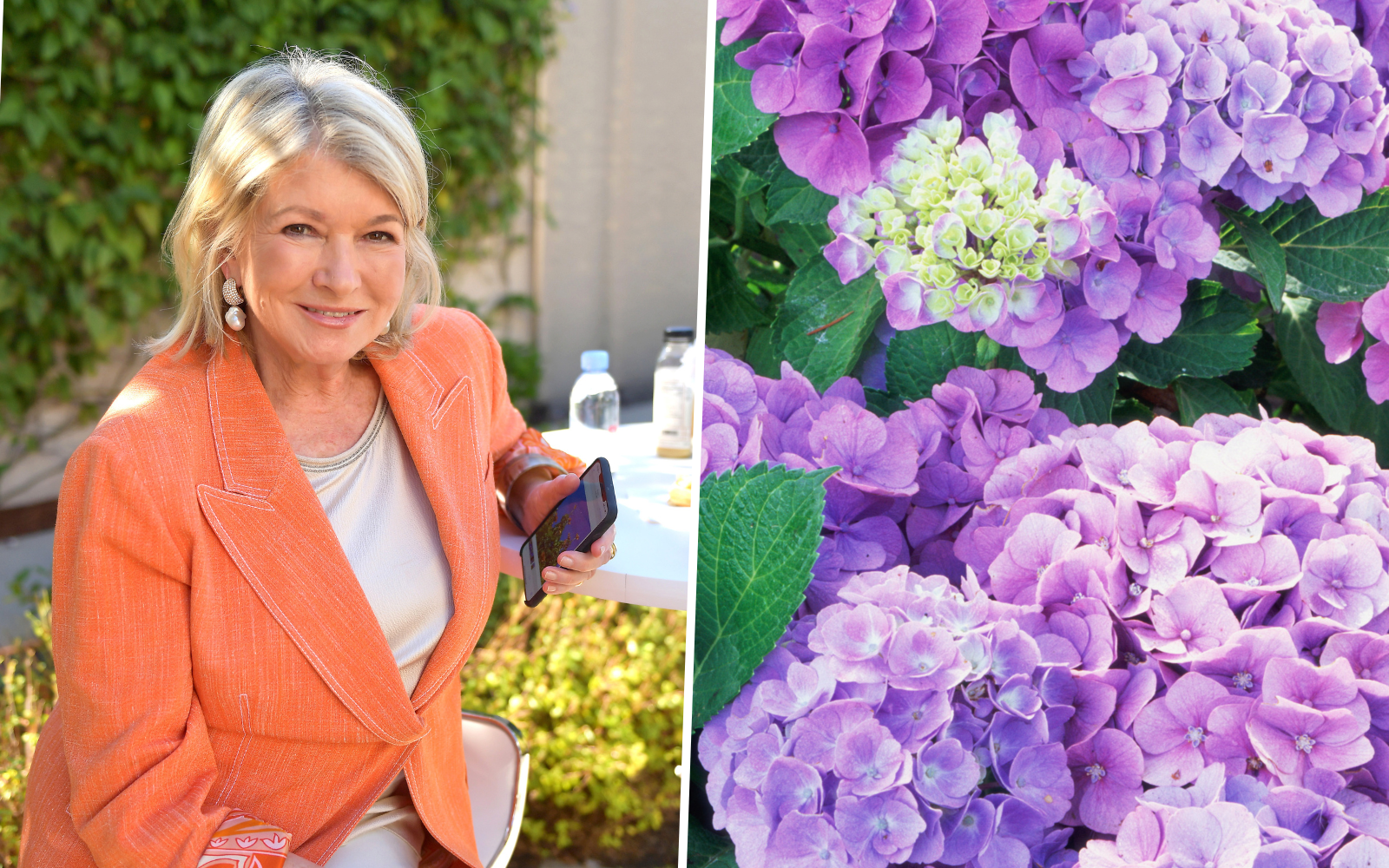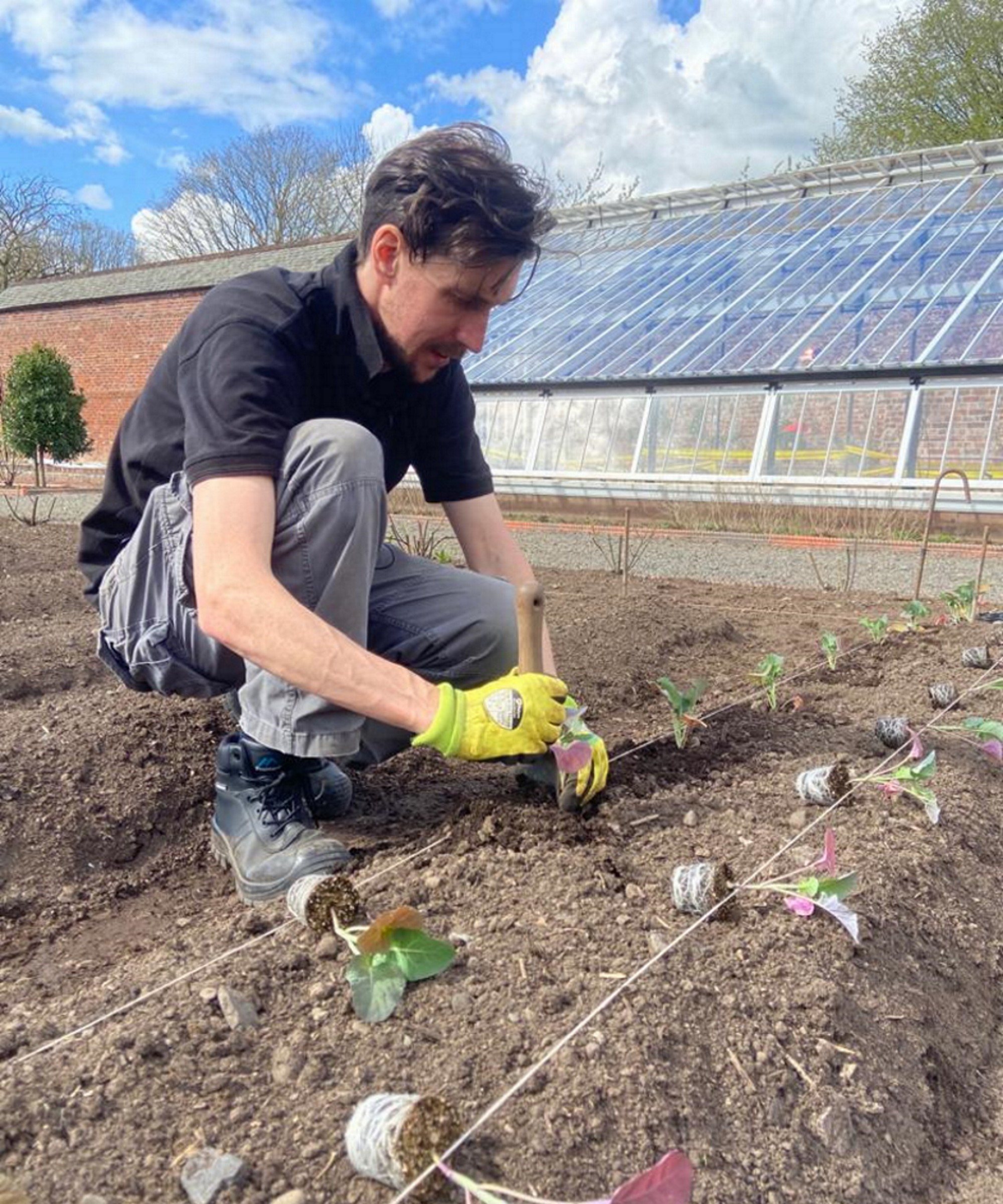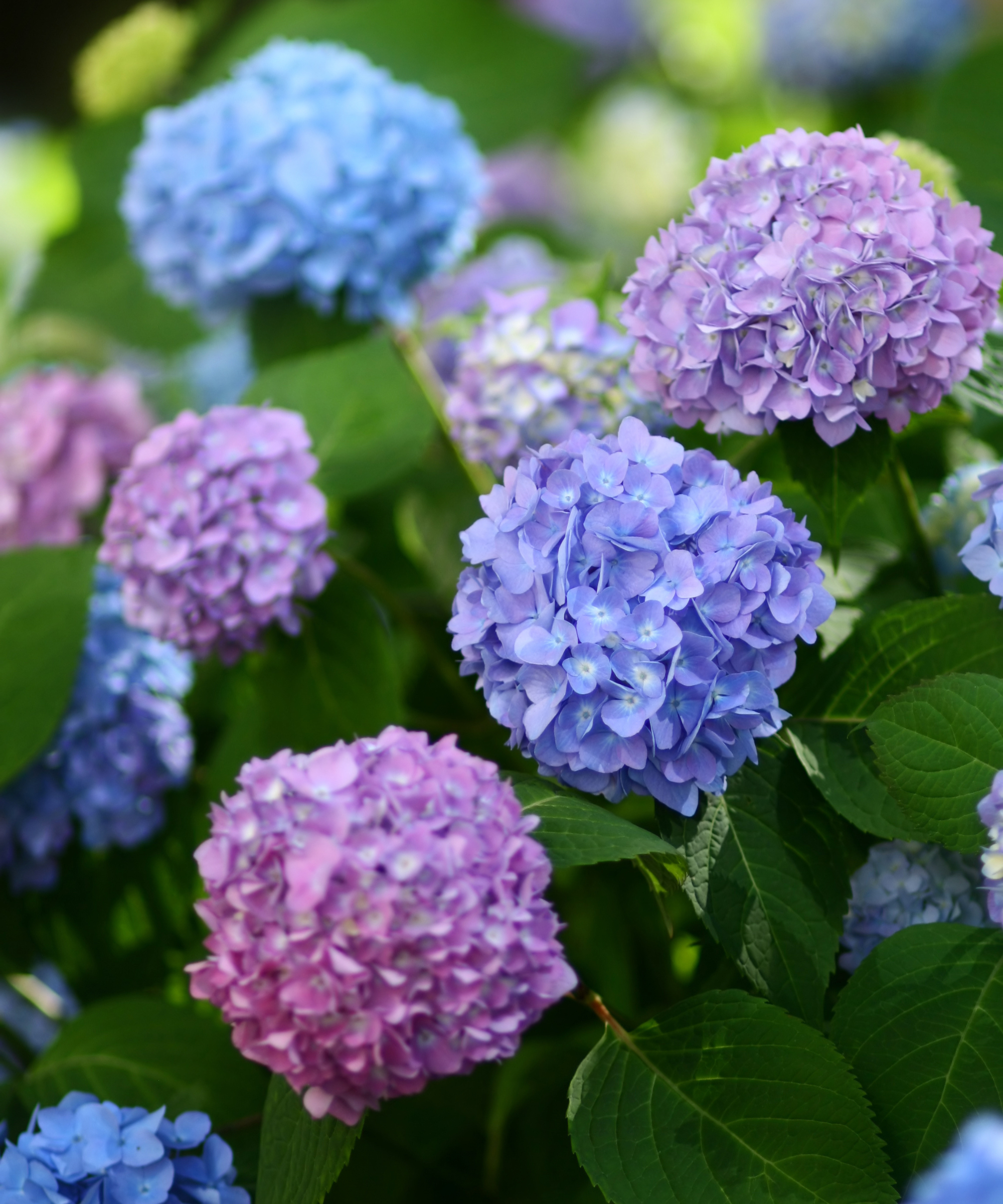Want to get more blooms from your hydrangeas? Martha Stewart's method is the key to success
It's time for this summer perennial to take center stage – and Martha's expert-approved tips will maximize their beauty for the entire season ahead


Design expertise in your inbox – from inspiring decorating ideas and beautiful celebrity homes to practical gardening advice and shopping round-ups.
You are now subscribed
Your newsletter sign-up was successful
Want to add more newsletters?

Twice a week
Homes&Gardens
The ultimate interior design resource from the world's leading experts - discover inspiring decorating ideas, color scheming know-how, garden inspiration and shopping expertise.

Once a week
In The Loop from Next In Design
Members of the Next in Design Circle will receive In the Loop, our weekly email filled with trade news, names to know and spotlight moments. Together we’re building a brighter design future.

Twice a week
Cucina
Whether you’re passionate about hosting exquisite dinners, experimenting with culinary trends, or perfecting your kitchen's design with timeless elegance and innovative functionality, this newsletter is here to inspire
'Sometimes less is more, but when it comes to hydrangea flowers in your garden, more is definitely more,' Martha Stewart says. And we're inclined to agree.
Hydrangea season is underway, and the lifestyle guru has reminded us exactly why this bright and shrubby is so celebrated. The flower naturally lends itself to summer gardens of all sizes – from Martha's famous Bedford farm to smaller urban plots, wherever we may be.
As she says, the only thing better than having hydrangeas in your garden is having an overflowing abundance of their blooms that will make an organic statement for the season ahead. And while we may already know how to grow hydrangeas – learning how to maximize their blooms is a different question.
Here's how Martha achieves more blooms from her hydrangeas and whether our resident garden expert agrees with her steps to success.

How to get more blooms from your hydrangeas – Martha Stewart's advice for abundant flowers this summer
'Multiply the number of bold, bright blooms on your woody hydrangea shrubs by making sure your plants have the right amount of sunlight and soil, a fertilizer designed to increase bloom quantity, and a pruning and deadheading routine that keeps them flowering all season long,' Martha says via Instagram. But what exactly does that involve?
We asked our garden expert, Drew Swainston, to expand on her advice.

Drew qualified as a journalist before studying for a horticulture qualification, after which he worked as a professional gardener for several years, specializing in kitchen gardening. He's now bringing his expertise and passion to Homes & Gardens as a member of our team.
1. Finding the right lighting
Too much sunlight can cause hydrangeas to wilt, so achieving the light right is key to getting the maximum flowers. 'Hydrangeas want a spot that is not too sunny and not too shady,' Drew says. 'They want a protected and dappled spot that is protected, ideally one that is sunny in the morning and shady in the afternoon.' But we should never expose a hydrangea to full sunlight.
Design expertise in your inbox – from inspiring decorating ideas and beautiful celebrity homes to practical gardening advice and shopping round-ups.
'Get the spot right, and the hydrangea will reward you with lots of stunning blooms, if you bake it too much in full sun, then the number of flowers will reduce dramatically.'
Martha does not mention watering hydrangeas in her post, but it's worth noting that we should aim to water several times per week to promote deep root growth.

2. Feeding with fertilizer
'Feed hydrangeas with a fertilizer high in phosphorus, such as this one from Amazon, which is the essential nutrient needed for developing flowers. However, feeding our plants with too much nitrogen will encourage lots of foliage growth at the expense of flowers.
'Opt for an organic slow-release fertilizer with all essential nutrients but with a higher level of phosphorus rather than a balanced fertilizer, which won't boost flowering,' Drew says. 'A high-phosphorus fertilizer can include the likes of chicken manure or bone meal.'
3. Mastering a deadheading routine
As Martha reminds us, knowing when to prune hydrangeas and deadhead successfully is a great way to guarantee more blooms in the future. And Drew agrees.
'Deadheading hydrangeas can give you a second set of flowers, so get out with those pruning shears right after flowering,' he says. 'Not only will your plant look neater as a result, but it will also preserve energy that can go into producing more beautiful blooms.'

Megan is the Head of Celebrity Style News at Homes & Gardens, where she leads the celebrity/ news team. She has a history in interior design, travel, and news journalism, having lived and worked in New York, Paris, and, currently, London. Megan has bylines in Livingetc, The Telegraph, and IRK Magazine, and has interviewed the likes of Drew Barrymore, Ayesha Curry, Michelle Keegan, and Tan France, among others. She lives in a London apartment with her antique typewriter and an eclectic espresso cup collection, and dreams of a Kelly Wearstler-designed home.